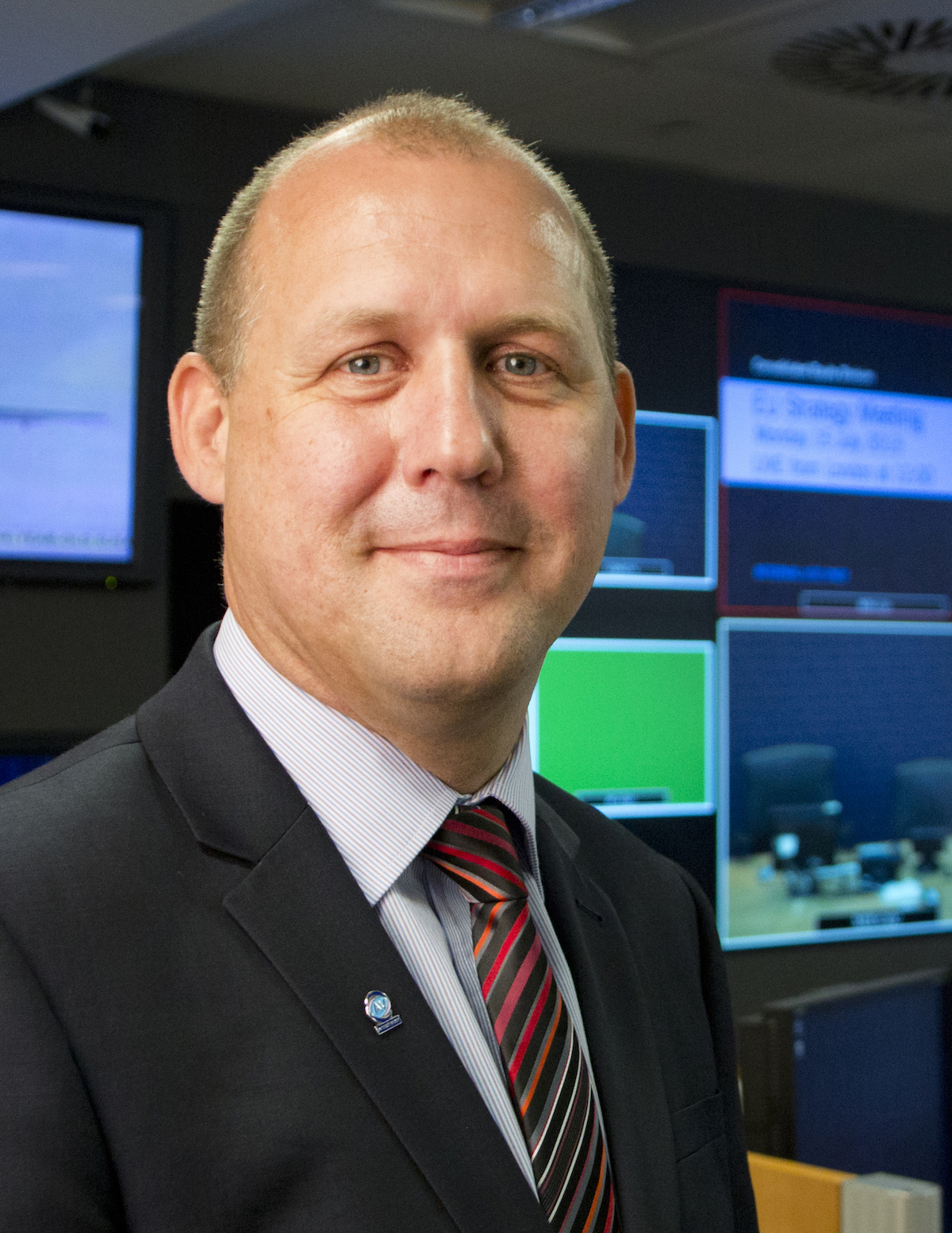Building Successful Relationships With Integrators

Most professionals would agree that good relationships breed good business. For tech managers, these relationships are often formed with AV experts, and how well or poorly they’re managed greatly influences a project’s overall success. And, just like in life, the onus is on everyone—integrators, consultants, and their clients—to be active participants in cultivating and nurturing an exchange that benefits everyone in the end.
[Bolstering Your Organization With AV Specialists]
At Convene, an event facilities and flexible workspace provider headquartered in New York, AV deployments for its growing list of properties are almost exclusively handled by integration firms. (Convene currently has 27 properties throughout New York City, Boston, Philadelphia, Washington, DC, Chicago, and Los Angeles.) According to Michael Judeh, the company’s director of AV technology, Convene works with a small stable of integrators that are familiar with the organization and its needs. “There’s a fair amount of complexity in these systems, and every time we bring in a new integrator there’s a large learning curve, and there are some idiosyncrasies in each one of these [roll-outs] that you can’t really put down on paper and memorialize, as much as we’ve tried to,” he said. This approach helps Judeh and his team arrive at the commissioning and field testing phases of a project more rapidly.
Finding a Partner
The ideal integrator, in Judeh’s mind, is one who cares as much about the success of a deployment as he and his colleagues do. “The integrators that we have worked closely with—and that have done really well—view it the same way that we do: they have the same emotional attachment and connection to each one of the projects, and the same emotional attachment to doing it correctly and not just doing it to get it done,” he said. The reason this is so crucial, he explained, is because if Convene customers aren’t able to take advantage of the AV technology that was promised to them, the firm potentially loses revenue—and maybe even repeat business. “It’s not like building a bunch of conference rooms, where if one’s not working you can just pick up and move your [internal team] next door. If our main event space is not functioning, we can’t just pick them up and move them next door. That’s a pretty upset client, and there is reputation damage involved.”

Alex Wagner, subject matter expert at TAD Associates Inc., an architectural and technology design firm also headquartered in New York, has had the opportunity to participate in—and witness—relationship building, both good and bad. Prior to joining TAD, she relayed that she worked for 10 years at an AV integration firm. For her, the basis of good relations between consultants, integrators, and end clients is communication: the right people need to be in the right place, and the necessary information pertaining to the project is transmitted to the right individuals. “I think we have often run into problems where either the wrong person is in the room, or it’s not clear to everybody exactly what the timelines and scopes are, or what kind of documentation is expected,” she said. “The clearer everybody is about what they need to do, when they need to do it—and who needs to know [about it]—the easier it is to get things off the ground and to make progress.” In order for an AV deployment to be successful, she says, it’s best to avoid surprises.
On the Same Page
One surprise that is worrying to Wagner has to do with the “who” part of the equation. She explained that during the bid process, her firm asks integrators to detail who from their organization will make up the project team. This allows the TAD team to review things like CVs and project histories to adequately prepare for the new working relationship. “On more than one occasion, once the project has been awarded, different people end up assigned to the actual project,” she described. This isn’t to say that the integrator’s new project team isn’t qualified for the job, she clarified, but it does produce an element of surprise that doesn’t sit well. “Because if that’s the kind of relationship they’re building, where they can swap in people and consider all of the resources identical, that concerns me that they may also do that when it comes to other parts of the process—swap in this amplifier because it’s just the same thing, [for example]. That kind of attitude is the kind of thing that can get projects burned quick.”

Of course, end clients, too, play a role in fostering good relations, and those who have a good idea of what they want help both integrators and consultants to succeed. Wagner said this doesn’t mean that clients need to specify what precise piece of technology they’d like integrated, but having the ability to communicate how they want it to function, what their end users are familiar with, and what their workflow is goes a long way. “It’s really refreshing when the client has the experience to say, ‘this is the stuff that’s worked for us in the past. These are the things our end users are comfortable with. And this is the kind of experience we’d like to curate.’” she illustrated. And, for those who may be doing something for the very first time, this approach can still apply: “They don’t need to know the answers or even the right questions immediately before we start, but somebody who can provide answers once the right questions are asked, that’s really important.”
A daily selection of features, industry news, and analysis for tech managers. Sign up below.
In a discussion about user training, Owen Ellis, chairman of the West Sussex, U.K.-based AV User Group—a peer network of tech managers and manufacturers that regularly meet in a number of cities across the globe—pointed out that integrators that pay attention to ensuring users can operate the systems they deploy are better positioned to cultivate long-term relationships with their clients. (Prior to leading AV User Group, Ellis was an executive-level tech manager for a global financial services firm.) “[Integrators] should think about making it a core part of their proposal to the customer, and show the customer that they take it seriously … and how important to them it is that these systems are successful, and they do get high adoption, and they do get return on investment,” he said. “My experience as an end user all those years that I did it, when I talked to any of my peers and they talked about their relationships with their integrators, the integrators that helped them—that were open and honest with them—they ended up respecting them far more and had deeper, more rewarding, and longer-term relationships with them than those that didn’t. It’s not always about price.”

When vetting AV integrators, Judeh urges his counterparts across the country to adhere to the old adage, “trust but verify.” “While there are a lot of great integrators, they don’t always understand the end user’s use case. You hire the expert, but always double-check every piece of work that they do,” he said. “It’s not to undermine; it’s also what [you] can catch in advance that helps the integrator later, down the road. It’s about all of us working together—we’re all going to the same place.”
Help Wanted
One of the challenges in working with integrators is that they’re often stretched thin, according to Michael Judeh, director of technology at Convene. “I think the industry is at peak capacity, and I don’t think there’s a deep enough talent pool to support all of the work,” he said. “While the key players at each integration firm might be really, really strong—the sales engineer, or the [project] engineers—I don’t think there are a lot of great field engineers. I think we need more great field engineers, because they’re the direct client-facing piece. We’re going to spend a lot of time together over the course of three weeks to a month when we stand up a property; are they really someone we want to spend time with? I think that’s a key piece. And really, how do we deepen the talent pool in the industry overall? That’s a bigger conversation.”
Carolyn Heinze is a freelance writer/editor.
Carolyn Heinze has covered everything from AV/IT and business to cowboys and cowgirls ... and the horses they love. She was the Paris contributing editor for the pan-European site Running in Heels, providing news and views on fashion, culture, and the arts for her column, “France in Your Pants.” She has also contributed critiques of foreign cinema and French politics for the politico-literary site, The New Vulgate.
